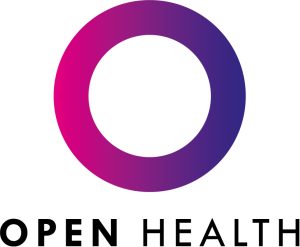Equipping your medical affairs teams with solutions to navigate the healthcare landscape
February 26, 2020 |
Dr Tyler Ray, OPEN Health Medical Communications
The healthcare landscape has experienced a significant transformation in the past two decades. The advancement in digital health technology, the availability of ‘big data’ and a focus on a value-for-patient economic environment are just some of the major contributing factors driving current trends.
The evolving changes in healthcare have highlighted the importance and relevance of medical affairs teams in the pharmaceutical and biotechnology industries. Medical affairs teams, with Medical Science Liaisons (MSLs) at their core, are now consistently recognised to be fundamental in companies’ strategies and value propositions. Traditionally, medical affairs teams and MSLs were often seen as a supporting function. However, given recent industry transformations and new requirements, medical affairs teams are now being described as the ‘third strategic pillar’ of a successful organisation and are increasingly considered to be equally as important as research and development (R&D) and commercial counterparts.1
The role of an MSL has progressively evolved since it was first established by the Upjohn Company in 1967.2 MSLs provide a crucial link between healthcare companies and healthcare decision makers, widely defined as physician, payer and patient. MSLs are a key resource within an organisation. They are central to providing scientific advice, training and insight generation, which is essential for overall company strategy development and implementation. External scientific engagement and exploration of mutual scientific and clinical interests by MSLs adds significant value to clinical practice, ultimately benefiting patients. MSLs Healthcare decision makers and providers are increasingly forming alliances with MSLs and medical affairs teams to help improve their understanding of the complex science and targeted medical treatments that are becoming widely available. These alliances are crucial for evidence- and value-based clinical decision making and deliver substantial benefits for research, healthcare education and patients.3
With such rapid changes in the industry and the increasing importance of medical affairs teams, what training programmes are needed to build a multifaceted and highly skilled team?
1 . A vision for medical affairs in 2025. https://www.mckinsey.com/industries/pharmaceuticals-and-medical-products/our-insights/a-vision-for-medical-affairs-in-2025
2 . Morgan DK et al. History and evolution of field-based medical programs. Drug Inf J 2000;34:1049–1052.
3 . Doran E et al. Empirical uncertainty and moral contest: a qualitative analysis of the relationship between medical specialists and the pharmaceutical industry in Australia. Soc Sci Med 2006;62:1510–1519.
At OPEN Health Learning & Development, we step beyond traditional industry and medical affairs training programmes by developing your team’s knowledge, competencies and confidence.
We believe that medical affairs training programmes should have a focus on:
- Learner training needs developed from thorough analyses that are aligned to the specific requirements of medical affairs business units
- Enhancing a medical affairs team’s understanding of scientific content, stakeholder management principles and information management solutions
- Skills training that allows users to meet competencies that are tailored to the core medical affairs principals of communication, science, strategy and ethics
By combining the above, drawing on best practices in adult learning theory and leveraging technologies to achieve blended learning, programmes are designed with outcomes in mind to help clients maximise their teams’ potential and act as credible partners across the healthcare community.
Your teams are your most powerful tool; equipping them with the right resources will enhance their performance and maximise their potential, allowing you to set and implement smart and effective strategies for your business.
If you would like to know more about how OPEN Health Learning & Development can work in partnership with you to execute your internal training needs, please do get in touch.
This content was provided by OPEN Health
Company Details
Latest Content from OPEN Health
Spotlight interview: 15 minutes on digital in medical communications
Gemma Allen, Head of Digital Communications, OPEN Health takes 15 minutes to answer some key questions on digital in medical communications
Generating data on long-term outcomes with gene and other advanced therapies
Gene therapy and advanced cell-based therapies offer patients hope and the potential to make them ‘chronically well’.
Are you using Patient-Reported Outcomes (PROs) in your oncology trials? If not, why not?
A recent blog, published by Sarah Tressel Gary and Rinah Yamamoto called “Patient-Reported Outcome Data in Oncology Trials - Part 2: Clinical Benefit and Patient Preference”, has sparked our interest....
Spotlight interview: 15 minutes on insights and market research in pharma
Neil Rees, Head of Research, OPEN Health Patient & Brand Communication takes 15 minutes to answer some key questions on insights and market research in pharma
OPEN Health reflections on the World Orphan Drug Congress in Barcelona
Having just returned from a very busy but hugely enjoyable few days at congress, I wanted to share our views on the event and key themes that our healthcare communications...
Patient journey mapping: exploring the clinical and the emotional journey
By Chris Hodgson, Neil Rees, Sumira Riaz and Karen Petticrew While we can all agree that the value of developing a patient journey map cannot be underestimated when exploring the...
OPEN Health announces the integration of Pharmerit International into the group
OPEN Health has today announced the integration of Pharmerit International, a global leader in health economics and outcomes research (HEOR), into its group of companies.
OPEN Health mobilised to support outcomes with gene and other advanced therapies
Harnessing the power of collaborations to bring real insights and improve outcomes
Spotlight interview: 15 minutes on PR in pharma
Vicky Bramham, Managing Director, OPEN Health takes 15 minutes to answer some key questions on PR discipline.
OPEN Health PBC recognised as No. 1 independent creative agency
We’re No.1! PMLive have named OPEN Health Patient & Brand Communications as the no.1 independent creative healthcare agency. The aim of the PMLive Top 10 lists is to highlight those...





